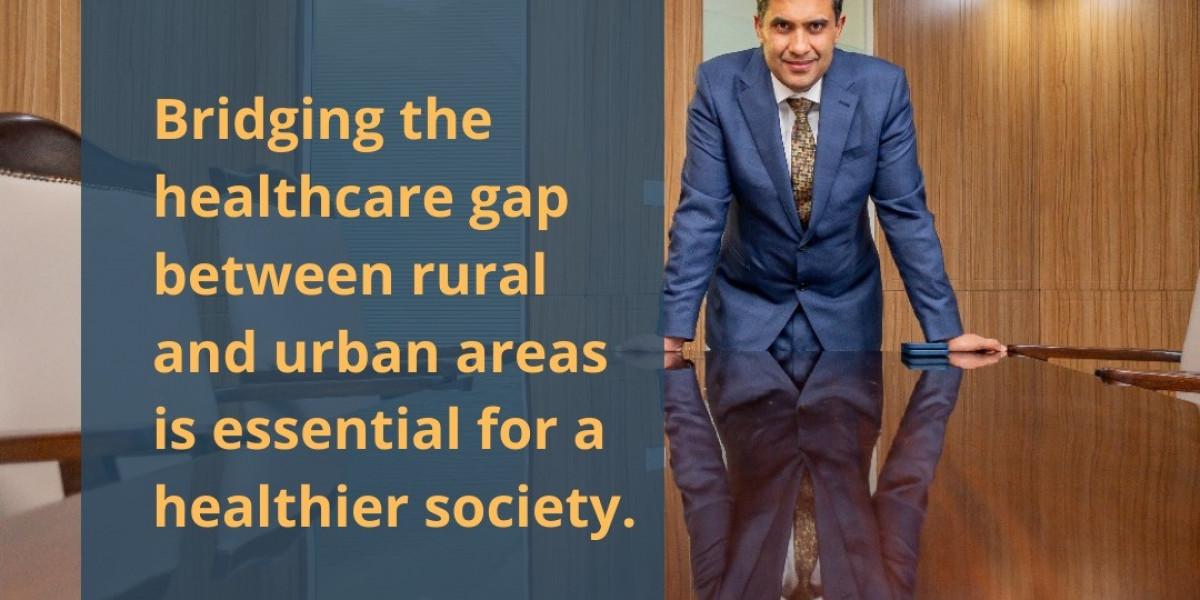Africa’s healthcare systems are entering a new era—one marked by bold technological innovation, digital transformation, and data-driven decision-making. Across the continent, AI-powered diagnostics, telemedicine platforms, and digital health solutions are rapidly reshaping the way care is accessed, delivered, and monitored.
Nowhere is this transformation more evident than in Kenya, where forward-thinking healthcare leaders are harnessing technology to overcome long-standing challenges such as limited access, infrastructure gaps, and a shortage of medical professionals. One of the pioneers driving this revolution is Jayesh Saini, founder of Lifecare Hospitals, Bliss Healthcare, and Dinlas Pharma. His institutions are among the first in East Africa to integrate artificial intelligence, teleconsultation, and digital workflows into everyday care delivery.
This article explores how digital innovation is redefining healthcare in Africa—improving outcomes, increasing efficiency, and opening new doors for underserved populations.
1. The Need for Technological Transformation in African Healthcare
1.1 Persistent Systemic Challenges
Doctor-to-patient ratios remain low across Africa, with Kenya averaging just 1 doctor per 5,000 patients, far below WHO recommendations.
Many rural and peri-urban areas lack specialists, diagnostic labs, or access to real-time medical advice.
Paper-based systems and fragmented data limit continuity of care and public health planning.
1.2 The Role of Technology
Digital tools offer immediate, scalable solutions:
AI-powered diagnostics support medical decision-making and reduce human error.
Telemedicine breaks geographical barriers, offering specialist access in real-time.
Mobile health (mHealth) applications help with appointment scheduling, follow-ups, and patient education.
Electronic Health Records (EHRs) streamline data management and coordination.
2. Jayesh Saini: Leading Digital Health Innovation in Kenya
2.1 AI-Powered Diagnostics in Lifecare Hospitals
Under Jayesh Saini’s leadership, Lifecare Hospitals have deployed:
AI-supported diagnostic platforms in radiology and pathology labs that assist in early detection of conditions like pneumonia, tuberculosis, and cancer.
Tools that enable pattern recognition in diagnostic imaging, enhancing speed and accuracy—especially in facilities with limited radiologists.
This reduces diagnostic delays and improves treatment outcomes, especially in underserved counties.
2.2 Telemedicine Expansion at Bliss Healthcare
Bliss Healthcare has built a robust telemedicine network that:
Offers virtual consultations to patients across more than 100 outpatient centers.
Supports home-based care programs, particularly for chronic illnesses like diabetes and hypertension.
Helps decongest facilities by triaging non-emergency cases remotely, ensuring in-person visits are reserved for complex conditions.
Bliss’s telemedicine model ensures that patients in rural or travel-restricted environments can still access expert care.
2.3 Integrated Data Systems Across the Network
Both Lifecare and Bliss have adopted cloud-based Electronic Health Records (EHRs), ensuring continuity of care across locations.
EHR integration allows clinicians to track treatment history, medications, lab results, and follow-up requirements in real-time.
This seamless data flow improves diagnosis, reduces duplication, and supports long-term patient management.
3. Broader Applications of Health Tech in Africa
3.1 Remote Monitoring and mHealth Apps
Patients with chronic conditions now use mobile apps for:
Tracking vitals
Medication reminders
Receiving educational tips
This empowers patients to manage their health proactively.
3.2 AI in Public Health Surveillance
Predictive analytics powered by AI is being used to:
Track infectious disease outbreaks
Allocate resources based on real-time data
Improve emergency response strategies
3.3 Digital Training for Healthcare Workers
E-learning platforms provide ongoing clinical and operational training to healthcare providers, especially in rural or hard-to-reach regions.
4. Challenges to Scaling Digital Health in Africa
4.1 Digital Infrastructure Gaps
Many rural areas still lack stable internet access or reliable electricity, which limits the reach of digital tools.
4.2 Data Privacy and Regulation
As patient records become digitized, data protection policies and cybersecurity frameworks must evolve to keep pace.
4.3 Cost and Digital Literacy
Some digital solutions require upfront investment and training, both for providers and patients.
Despite these challenges, healthcare leaders like Jayesh Saini are demonstrating that with the right strategy, digital health can scale rapidly—even in resource-constrained settings.
5. The Future: Where AI and Digital Health Can Take Kenya
AI-powered triage systems that route patients to the right care path instantly
Chatbot support for non-emergency queries and symptom checkers
Blockchain-secured health records for cross-border patient mobility
Predictive modeling for staffing, supply chains, and emergency preparedness
As Kenya builds a more inclusive and resilient healthcare system, the integration of tech-led services will become essential.
Conclusion
The digital revolution in healthcare is not a distant future—it is unfolding across Africa right now. In Kenya, leaders like Jayesh Saini are proving that with technology, healthcare can be made smarter, faster, and more inclusive. His institutions stand as a model of how private healthcare providers can drive transformation while maintaining clinical excellence and financial sustainability.
As more hospitals adopt AI, telemedicine, and digital systems, the result will be a healthcare landscape that is more equitable, data-driven, and resilient—not only for Kenya, but for the entire continent.
Frequently Asked Questions (FAQs)
Who is Jayesh Saini?
Jayesh Saini is a Kenyan healthcare entrepreneur and founder of Lifecare Hospitals, Bliss Healthcare, and Dinlas Pharma. He is known for integrating technology and innovation into accessible healthcare delivery across Kenya.
How is AI used in Kenyan healthcare?
AI supports diagnostics, treatment planning, and public health analytics—helping clinicians make faster and more accurate decisions.
What are the benefits of telemedicine in Africa?
Telemedicine increases access to specialists, reduces patient travel time, and enables continuity of care, especially in remote or underserved areas.
Are digital health solutions sustainable in low-resource settings?
Yes—with strategic planning, investment in infrastructure, and training, digital health can scale sustainably in low-resource environments. Institutions like Bliss and Lifecare are already proving this model in Kenya.








